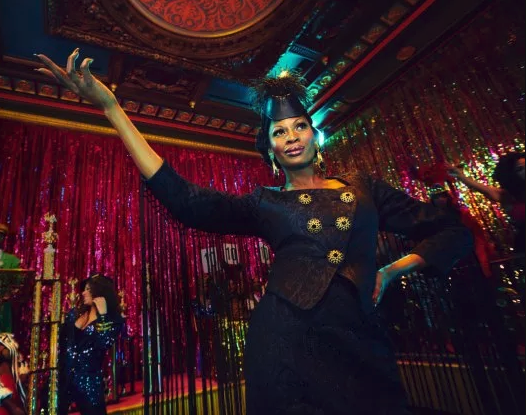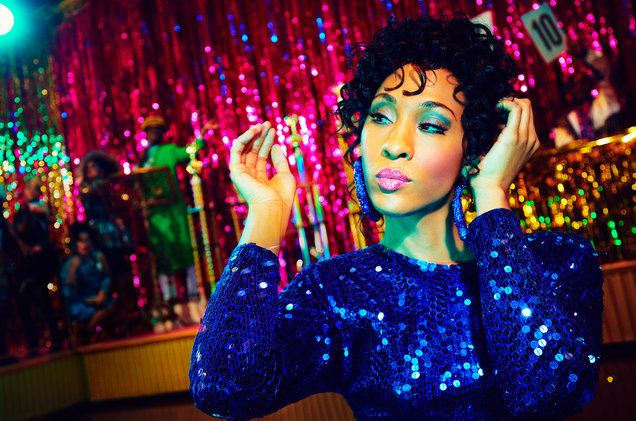I’ve been thinking a lot about community lately and how being embedded in one can change one’s life. For better or for worse.
Some communities can eat away at your soul and self-worth and believe it or not, it can be difficult leaving those spaces. Especially if it’s the only family or community you know. To abandon it would mean to be alone and that can be a scary thing. And once one does leave, it can take years to heal.
I get it. I truly do.
So when I have the opportunity to observe healthy, nurturing, loving communities I tend to get emotional.
And I never thought that would be the case while binge-watching ‘Pose’ — a TV series that explores the New York ball culture during the height of the AIDS epidemic.
I watched the series slack-jawed. Here was this underground community that served a much-needed purpose and a marginalized group of people. Once upon a time and even today, being part of the LGBTQ community is enough to get your ostracized from your family and worst yet, killed. The number of trans women, particularly trans women of color being murdered escalates yearly.
I’ll go on record and say that I’m no expert on the LGBTQ community or ball culture.
I simply know that what I saw touched me.
First, balls were fabulous events where ‘houses’ and individuals would compete against each other for bragging rights, notoriety and trophies. Individuals or houses would dance, vogue or pose in various categories for the audience and judges. The balls were safe spaces where LGBTQ people could be themselves without reprisal.
Houses were headed and founded by older members of the ballroom scene and called “Mothers” or “Fathers.” These parents would take in youth who had been kicked out by their families and gave them guidance, support, and a sense of belonging. And most importantly, love. These mothers and fathers provided a nurturing family for these young people and that’s what had me all teary-eyed.
The show reminded me that everyone needs to feel safe, feel loved and feel like they belong. Everyone needs a community where they are supported and nurtured and allowed to grow and thrive and become the best versions of themselves.
The Tale of Two Mothers
Now, the show was deliberate in showing that not every house was supportive and nurturing and not everyone in the community was a credit to it. People are people after all and some folk start things clearly for their own selfish gain and ambition. But as a whole, the community was strong and served a vital purpose.
Enter Elektra Abundance of the House of Abundance

Elektra is a self-serving trans mother who doesn’t really fit the mothering type. If you’ve seen the show you know that’s a serious understatement! Elektra needed children like I need another font on my computer!
She is manipulative, talks down to her children but they win at the balls. Elektra is legendary and a fierce competitor. Which is why her children endured her verbal abuse for so long. I won’t spoil the show if you haven’t seen it but Elektra does have a redeeming moment and it’s heart-warming.
Blanca Evangelista of the House of Evangelista

This is the house and mother that had me come back to the show. (That and the ball scenes!) Blanca, a trans-Latina woman is set on building a legendary house. She’s firm yet nurturing. She helps her children set goals, never judges, and wants them to be healthy (it is the height of the AIDS epidemic).
I love how Blanca loves her children—these so-called throwaways.
I love how she is supportive of her community and sees the big picture.
I love how she fought for what she believed in and how she fought for her children.
I love how she was a good friend,
I love how she loved and showed love.
Her house is the epitome of a strong, nurturing community/family headed by a mother who is understanding and affirming.
And it was this sense of family and community that tugged at my heart.
It’s what most of us are looking for.
A place where we can be ourselves, grow and evolve, be loved and show love in an environment free of judgment, manipulation, and control.
Is there such a thing as the perfect family or community?
Not. Even.
But there are communities that strive for the well-being of their members and to me, that’s a beautiful thing.
Pose does a wonderful job of introducing us to the ballroom scene and life as an LGBTQ person during the 80s and 90s. The writing, the storyline, the fashion are all great draws.
But it’s the underlying theme of being connected to a community that supports you, empowers you and truly loves you is why I’m looking forward to season three.
Lisa N. Alexander is the author and founder of This Woman Knows and What Million-Dollar Brands Know. She is an award-winning filmmaker, director, producer, and writer and is the owner of PrettyWork Creative.






